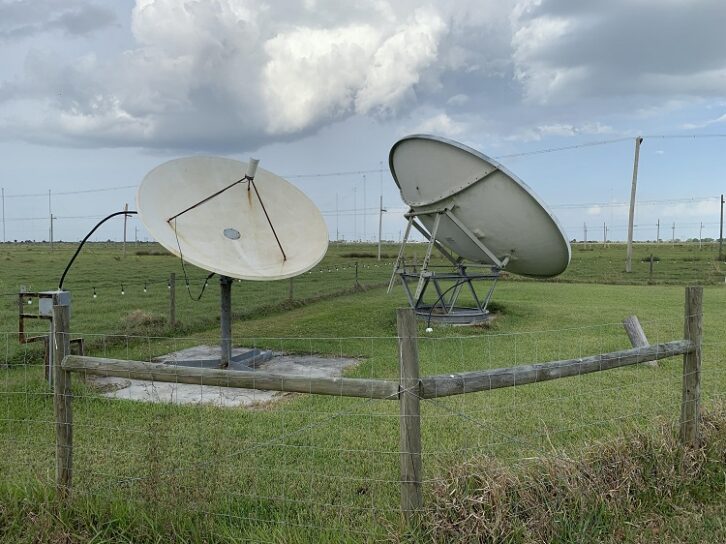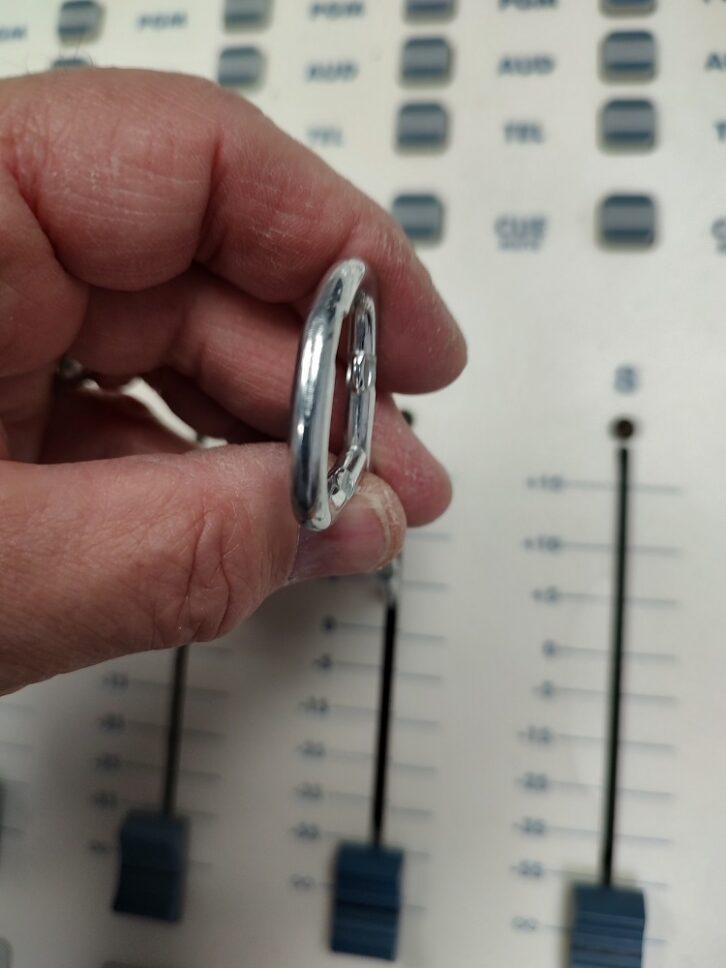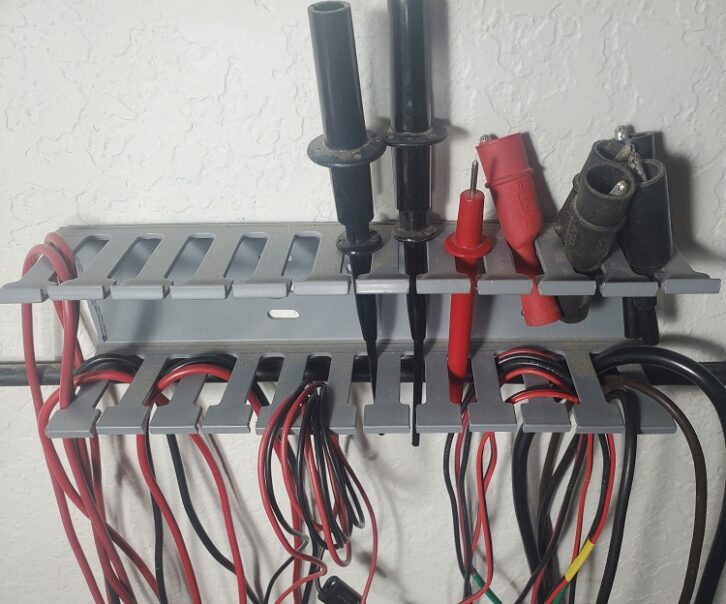
Have you seen strange insect images on security cameras at your transmitter sites? The picture above is from a stock art library but if you see something like this on your cameras send us a photo! Contract Engineer Stephanie Donnell says the magnification can be reminiscent of horror films of the 1950s and ’60s!
Spring is a good time to treat rain hoods, transmitter building overhangs and other spots where insects prefer to nest. Wasp and hornet spray will discourage nesting insects for several weeks and prevent you from getting stung.
Hardware checkup
The beginning of spring brings bugs but is also an ideal time to evaluate any infrastructure that was exposed to winter weather.
Hall Communications Lakeland Chief Engineer Steve Tuzeneu said his satellite dish needed attention, so he turned to Linkup Communications President Mark Johnson for tips on repainting the dish. Mark offered a three-step process.

First, inspect the dish to ensure that the metal underneath the original painting is not damaged. Then clean the dish thoroughly with a cleaning compound that will remove both grime and mold (and any peeling paint!)
Mark cautions against using a pressure washer even at a low setting. The impact of the water can deform the dish parabola.
Finally, use good marine paint. On the Lowes or Home Depot websites search for marine paint or boat paint for a variety of choices.
On a separate note: Steve has a Radio Systems Millenium console in a production studio but the original T-hook key for lifting the front of the board was missing.
 Steve solved the problem by using a paint can opener, as shown in the photo.
Steve solved the problem by using a paint can opener, as shown in the photo.
Stuck on you
Paul Sagi writes from Kuala Lumpur to tell us he loved Bill Traue’s “belt and suspenders” approach to protecting wired remote control systems, as we discussed in October.
In that same column we shared a tip from Rolf Taylor about printed labels. Paul relates that the Dymo label on his wife’s stethoscope was affixed 50 years ago and is still there! If you’ve ever had to remove or replace a Dymo label, I’m sure you’ll agree that they are long-lasting.
If it walks like a duct …
Patch-cord “combs” can be repurposed to hold AoIP cable dongles. Don’t have the budget for metal combs? San Diego’s Marc Mann has a tip: Grab a spare section of slotted wire duct.

Made out of a flexible polymer, the duct “fingers” easily spring back after bending to permit adding or removing cables. Even a short section can hold a variety of cables or adaptors.
Although ductwork can be obtained through Amazon, Marc suggests checking out “low-voltage” distributors in your area. These wholesale suppliers carry a range of wire management products as well as cameras, security/access and intercoms, that you may find useful.
Let there be light
In a previous column I shared a recommendation from Ed Walters, K8DI, that you always carry a good LED flashlight in your tool bag. With that in mind, enjoy this YouTube video: www.youtube.com/shorts/3Y8rX5EuzkQ.
It won’t fit in your tool bag, but it sure is bright. (Try not to get sucked into watching hours of YouTube shorts!)
Don’t worry about “bugging” us … send your tips! Workbench submissions are encouraged and qualify for SBE recertification credit. Email [email protected].







